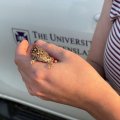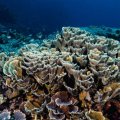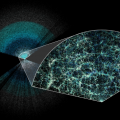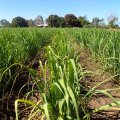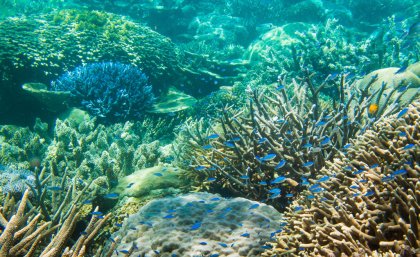
The University of Queensland has sealed a United Arab Emirates research collaboration to address global warming.
UQ’s Global Change Institute and the Sharjah Research Academy have agreed to a broad collaboration in coastal zone management, sustainable water technologies, food systems and renewable energy innovation.
GCI Director Professor Ove Hoegh-Guldberg said Sharjah had a rich tradition of research and education, and the agreement would bring broad benefits and opportunities for both institutions and their countries.
“Despite our geographic distance, Australia and the UAE are facing many of the same environmental challenges – not least those relating to our marine ecosystems and food security, which will be the initial focus areas for the partnership,” he said.
“Global warming is a global problem and UQ is privileged to work with another research organisation that is equally committed to improving our environment for a better world.”
Sharjah Research Academy Director General Professor Amr Abdel-Hamid said the agreement would enable research staff and graduate student exchanges, and research collaboration.
“This presents an exciting opportunity to work with like-minded researchers on some of the biggest issues facing our planet,” Professor Abdel-Hamid said.
“Students represent the next generation, so it is appropriate that educational opportunities and exchanges are at the core of this collaborative effort.”
A memorandum of understanding between UQ and Sharjah was signed by UQ Deputy Vice-Chancellor (International) Professor Monique Skidmore in the lead-up to COP21 in Paris, where world leaders are negotiating their positions on climate.
Professor Hoegh-Guldberg is leading the UQ delegation to the conference.
“If we continue on the current pathway of more than 2°C warming, by 2100 we will lose the Great Barrier Reef, and the ability of coral reefs in the Persian Gulf to survive will be severely impacted,” he said.
“The expected global coral bleaching and mortality in 2016 is a reminder of just how great the issue of climate change is and why we need to take urgent action on greenhouse gases such as CO2.”
UQ’s Deputy Vice-Chancellor (International) Professor Monique Skidmore signed the Memorandum of Understanding (MOU) on behalf of UQ.
Professor Hoegh-Guldberg presented the memorandum of understanding to His Highness Dr Sheikh Sultan Bin Mohammed Al Qasimi, Supreme Council Member, Ruler of Sharjah and President of the Sharjah Research Academy, for signing at the Emirate.
Media: GCI Communications and Engagement Manager Anna Moloney, a.moloney@uq.edu.au, +61 7 3443 3148, +61 (0) 478 487 211.





